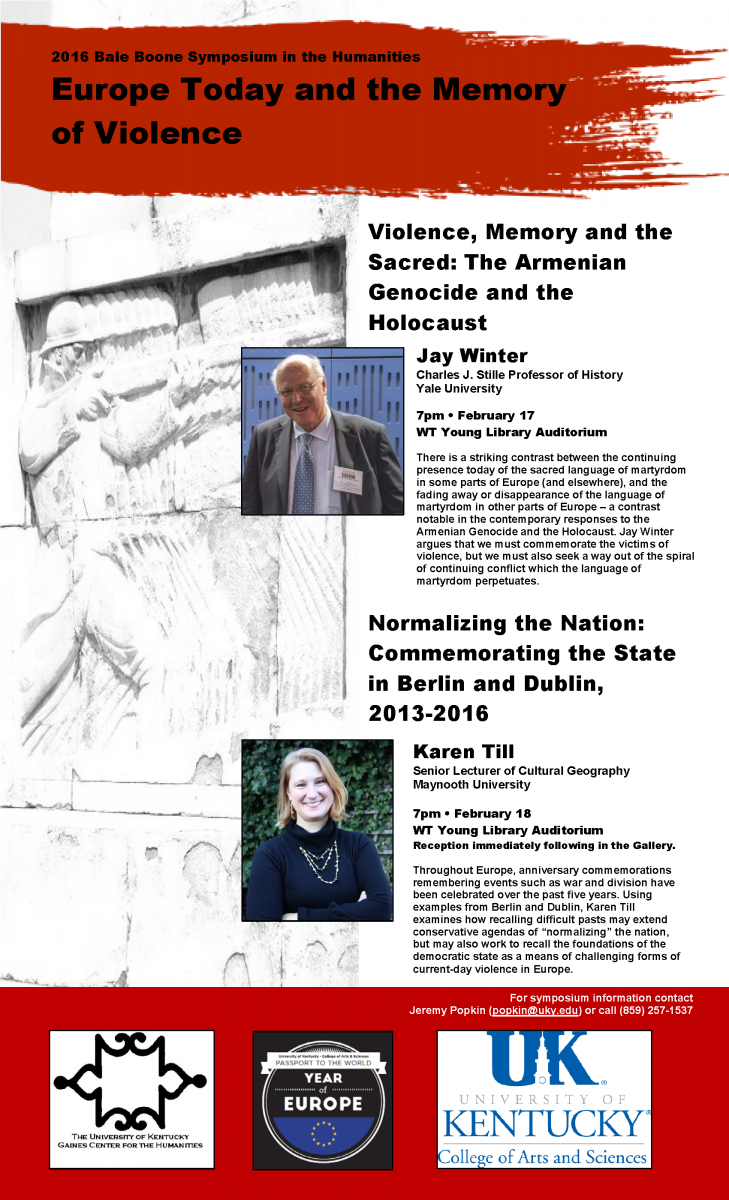Bale Boone Symposium: Violence, Memory and the Sacred: The Armenian Genocide and the Holocaust
Jay M. Winter, the Charles J. Stille Professor of History at Yale University, is a specialist on World War I and its impact on the 20th century and one of the pioneers of the field of the history of memory. Winter is the author or co-author of a dozen books, including Sites of Memory, Sites of Mourning: The Great War in European Cultural History, 1914-1918: The Great War and the Shaping of the 20th Century, and Remembering War: The Great War between History and Memory in the 20th Century. He is co-director of the project on Capital Cities at War: Paris, London, Berlin 1914-1919, was co-producer, co-writer and chief historian for the PBS series “The Great War and the Shaping of the 20th Century,” which won an Emmy Award, a Peabody Award and a Producers Guild of America Award for best television documentary in 1997.
This talk focuses on a contrast between the continuing presence today of the sacred language of martyrdom in some parts of Europe (and elsewhere), and the fading away or disappearance of the language of martyrdom in other parts of Europe by looking at the two contrasting cases of the Armenian genocide and the Holocaust. While martyrdom is at the heart of how Armenians today remember the catastrophe of 1915, there has emerged since the 1940s a very different linguistic register in Jewish responses to the Holocaust, one by and large free of the language of martyrology.The implications of this distinction are far-reaching. How we think about catastrophe matters in contemporary Europe. We must commemorate the victims of violence, but we must also seek a way out of the spiral of continuing conflict which the language of martyrdom perpetuates.
For more information visit http://www.uky.edu/academy/2016BBS.

